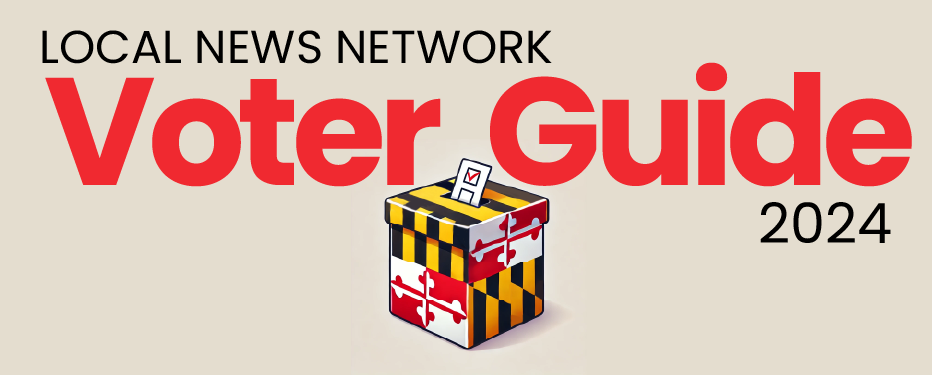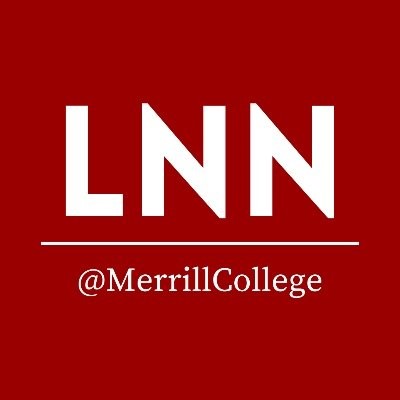Greg Malveaux
Running for school board in Carroll County
Website: gregmalveaux.org
Facebook: https://www.facebook.com/profile.php?id=100095474679804
How old will you be on Election Day (Nov. 5)?
53
Are you currently employed? If so, where, and what is your job title?
Professor of English composition and literature and am the college-wide coordinator of study abroad at Montgomery College.
What is the highest level of education that you completed, and where did you get that degree?
A doctorate in education and administration from Morgan State University.
Why are you running for the school board?
As the father of a Carroll County public school student, I deeply care about the future of my son and all of the children in the current school system. I’m a 25+-year educator and have seen firsthand the learning loss that has occurred with our students over the years. I want to bring curriculum that supports increased academic achievement to our students. I believe that we need to get back to basics and focus on traditional curriculum — math, reading, science and writing, as well as physical education, art, music and languages. With a strong educational foundation, our children will have pathways for future success with a trade, admission to college, or access into the workforce right out of high school. I am also running for the board because school safety and classroom disruptions are a major concern. There’s been a major increase in physical altercations amongst our elementary school students. I will push for policies that give teachers and administrators authority to address disruptive student behavior in the classroom. Also, I am running for the board to help retain local control, and I support opt-out classes when state-mandated curriculum misses the mark for values held by Carroll County citizens. Also, I understand that many of our residents are struggling in these difficult economic times, and I want to be very watchful, while on the board, that no needless spending occurs for Carroll County taxpayers. Every taxpayer dollar must be carefully accounted for.
What makes you a good candidate for the board?
I am a lifelong Maryland resident, and a 25+-year educator with a doctorate in education and administration. I have taught students in grades kindergarten-8, and currently do so in grades 9-12 through a dual enrollment program; my teaching experience has given me a strong understanding for curriculum development and educational delivery. I am honored by the great outreach of support that I have received from Carroll County Public School teachers and educators during this campaign. In addition, I am an administrator coordinating study abroad for an institution that serves 60,000 students. I’ve managed significant budgets and tailored curriculum for students. I am also the proud father of a Carroll County public school student, and I serve on the parent-teacher organization at my son’s school. A majority of our elected officials, including legislators, commissioners, law enforcement, county Board of Education members and mayors support me. I am proud of the fact that all of these supporters recognize my values, priorities and initiatives as beneficial for helping our children, Carroll County schools, families, teachers and school administrators — not to mention Carroll County taxpayers. With having established a strong rapport with community leaders and elected officials, starting on Day 1 with the board, I would be ready to learn from, and work collectively with, others to meet the challenges facing our schools.
What is the most important issue facing your school board and what would you do about it if elected?
There are a couple major issues of importance facing our school board, and since one is not more important than the other, I would like to address both. First, we have a pandemic of physical altercations and class disruptions occurring in our elementary schools. School safety is a great concern. If elected to the board, I would advocate for preventative measures to be put in place, including manageable classroom sizes, parental involvement, a major presence of security resource officers and using student mentors; in addition, I would support legislation to empower teachers and administrators with classroom behavior issues. To curb bullying and classroom distractions, I would also call for minimal cellphone presence in school. An equally important issue in our schools is the need to get back to basics. We must raise student academic achievement by refocusing on traditional curriculum — reading, writing, math and science. A strong educational foundation will provide our students future pathways to college entrance, a trade or a career right out of high school. This can be achieved by creating opportunities for our students. Students can work with local businesses to take part in internship opportunities, with local trade unions that give instruction in a classroom setting, with local tutoring businesses to provide additional learning outside of school or assistance with homework, and participate with nonprofit organizations with members who visit student classes.
Please name a public leader you admire and explain why.
I can recall my time in 10th grade when I desired academic and social change. I had always done well in the public school setting, but at this particular time, at this particular place, I still felt a need to alter my academic approach. I would go on to spend a few years at a Montessori school and came to greatly admire the Italian educator, Maria Montessori, who had developed the Montessori educational approach. As a hands-on learner who did not necessarily learn everything at the same pace as others, I embraced the self-directed learning environment and the principles that fostered independence and personal growth. I am the product of both a public school and Montessori model, and admire the vision of the educator, Maria Montessori. I would like to carry on her creativity and ingenuity in meeting the individual needs of each student in the public school system.
The Blueprint for Maryland’s Future, passed by the General Assembly in 2021, is a 10-year plan that includes increased education funding to support early childhood education, increased teacher starting pay, college/career-readiness standards for high school graduates, and expanded services to multilingual and impoverished families, among other goals. Please tell us your views on the Blueprint and how it will affect your school district.
The Blueprint brings both benefits and challenges for Carroll County Public Schools. With considering benefits, it will increase the minimum teacher salary to $60,000 by 2026. However, I wish that our full-time education support professionals had been included in the plan. Other positive initiatives include bringing additional mental health professionals and support staff in school; assisting students with multiple tracks in high school that lead to college, a technical trade or immediate entry into the workforce; and offering pre-kindergarten services to young learners. However, challenges also come with the Blueprint. There will be great difficulty in assuring all of its initiatives are funded and I commit to working alongside state and local government leaders to find ways we can meet many, if not all, of these provisions. Specific challenges that come with the Blueprint include its 60/40 teaching mandate. As a result, Carroll and other school districts in Maryland will have a difficult time finding highly qualified teachers to fill the gaps created by this mandate, and there will be an immense cost (over $20 million annually) to hire additional staff and assure fair wages and benefits for these new employees. We also need to be concerned with the fact that uncertified teachers have risen in excess of 20%. I share some concerns with our commissioners in Carroll County concerning the Blueprint, and as a board member I would work with them to find solutions that best serve the county needs while ensuring that we spend every taxpayer dollar wisely and effectively.
Some school districts nationwide are placing new limits on the use of cellphones in middle and high schools. What do you think should be the policy on student use of cellphones in your district, and why do you support that policy?
I support the new limits being placed on cellphones in middle and high schools. I understand parents’ concerns that cellphones be allowed in school in case of emergency situations. However, cellphones should not be present during class periods, during class change, and at lunch where important socialization can occur. Our teachers and staff agree. In a recent survey done in Carroll County Public Schools, nearly two out of three teachers and staff related that middle school students should not have access to cellphones during lunch, and well over half noted that high school students should not have access to cellphones during class change. Overall, less cellphone use in school tends to lead to less bullying and classroom disruptions, and brings an increase in student academic success and socialization.
Are you satisfied with your school district's efforts to ensure the safety of its students? What, if anything, should be done to improve school safety in your district?
Carroll County has one of the safest school systems in the state, and I hope to keep it that way. It is essential for every student, no matter their race, ethnicity, economic background or orientation, to be given a safe and healthy learning environment. This occurs with having preventative measures in place, including a reduction in cellphones to reduce intimidation and classroom disruptions. In addition, peer mentoring can improve mental health for students and create greater social bonds between students. Also, school officials and parents need to be cautious with the type of learning apps that are downloaded on children’s laptops. Security resource officers bring safety and mentorship to schools, particularly in middle and high schools. In addition, our schools need to actively engage with outside groups that address school safety, such as “Bee a Rae of Sunshine Foundation,” which focuses on bullying and youth mental health issues.
Do you think there are circumstances when books should be removed from school libraries? If so, what kind of books should be removed, and who should make those decisions?
For decades I’ve taught literature, including African American literature, that has continuously challenged students to delve into difficult subject matter and historic occurrences. The material applies to that class’s themes and objectives. The quality of the book, and not the race, ethnicity or orientation of the author, determines the work’s presence in the curriculum. I also know that books taught in my college-level class may not be age-appropriate material for middle school students or their school libraries. I support Carroll County Education Association’s stance to not condone materials that are sexually gratuitous in nature, and I support the removal of such books from school libraries. It is very important that we follow federal, state, and local laws that restrict a student’s access to age-inappropriate materials. I appreciate the service and experience of librarians and staff to ensure we present students with ideal learning resources that increase rigor and challenge critical thinking.
Some school districts enact policies allowing transgender and gender nonconforming students to use their preferred pronouns while at the same time not informing those students' parents about that decision. What is your opinion of such policies?
I support all children, no matter their race, orientation or economic status. No child should be intimidated or bullied. I will make sure this remains the case for every student. It is important for all students to be respected and accommodated within reason. Preferred pronouns and gender ID labeling can create confusion. This is why I support the current Board of Education’s stance that a meeting between student, teacher and parent be made to approve the new pronoun or gender identification for the student. This way, everyone is on the same page. Research shows that students excel more when parents are involved in school. Transparency between school staff, the student and parents assist with this.


